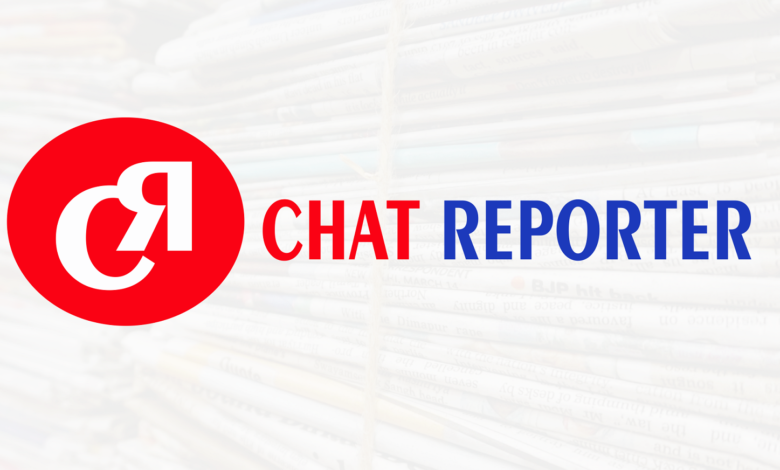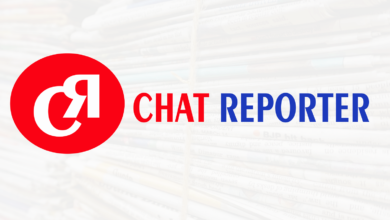Media should not hide behind cheap ruling party politics

Last week, I was watching a ZTN (ZimPapers Television Network) program, focussing on media coverage around Zimbabwe’s upcoming harmonized elections.
In attendance were representatives from the ZimPapers stable (which operates The Herald and Sunday Mail), Alpha Media Holdings (owners of NewsDay and The Independent), and the ZBC (Zimbabwe Broadcasting Corporation).Also present were those representing the ruling ZANU PF party, and the main opposition CCC (Citizens Coalition for Change).
The discussion (or, more appropriately, debate) appeared to proceed relatively well, until the two state media representatives – from ZimPapers and ZBC – were asked to respond to CCC accusations that their coverage was biased and skewed against the opposition party. In his response, the ZimPapers Group Political Editor, Ranga Mataire, pulled a shocked!
He claimed that their media policy was guided by ‘national interests’, thus, explaining their apparent negative treatment of the CCC.In this regards, it was clear that these government-owned media houses perceived the main opposition as ‘enemies of the state’, which did not deserve to be awarded fair, balanced and impartial coverage.
In other words, as far as the ZimPapers was concerned – sentiments I am quite sure are fully shared by their ZBC counterparts – all journalism ethical standards, for which we hold dear, were to be thrown out of the window, on account of narrow political party interests, dictated to by the ruling ZANU PF regime.
In fact, this past week, journalists – attending a series of nationwide training workshops on elections reporting, organized by the ZMC (Zimbabwe Media Commission) – signed a pledge committing to the religious adherence to our long-held ethical tenets of fair, balanced and impartial reportage.As it turns out, during one of these training workshops, held in Kwekwe, I actually raised concerns as to how exactly these pledges, which we signed, were to be enforced – since, immediately after, there were those amongst us who would obviously continue in their customary biased, hateful and toxic ways. Surely, how can we claim to have a country defined by a professional media – yet, openly and unashamedly violating the very basics of what we were trained to faithfully follow?
As a matter of fact, this bastardization of the most fundamental tenets of journalism goes further that what is written in media training modules. This is also a brazen violation of the country’s Constitution – the supreme law of the land.
Under Section 61(4) of the Constitution, ‘all state-owned media of communication must be impartial, and afford fair opportunity for the presentation of divergent views and dissenting opinions’.
In fact, contrary to the preposterous and utterly flimsy excuses used by the ZimPapers and ZBC in ducking their responsibilities – this provision is not limited to the so-called ‘election season’ alone.
The State media is supposed to provide ongoing coverage of dissenting and divergent opinions – all year round, each and every year. In the case of the print media, The Herald and Sunday Mail, even my articles should be published without reservation.Divergent views and voices of dissent should be provided a platform in all news bulletins or stories that are of national importance.
In the same light, opposition leaders and elected officials should also be given fair, balanced and truthful coverage – without attempts at twisting or bastardizing what has been said – as is the common practice. Similarly under Section 155, ‘all political parties and candidates contesting an election or participating in a referendum [should be accorded] fair and equal access to electronic and print media, both public and private’.
The CCC deserves to be heard – especially due to its standing as the main opposition in Zimbabwe – at each and every news and current affairs program on ZBC.
This should be meaningful coverage – not a mere two minutes from an hour (or more, since ZBC main news bulletins often overlap their slated time slots) – whereby, ZANU PF receives all the remaining time.
I will not even touch on the endless nauseating propaganda filling up ZBC’s programming throughout the day – always touting the ‘phenomenal work’ of President Emmerson Dambudzo Mnangagwa and his administration.
One simply needs to watch, for instance, the SABC or BBC – in order to get a glimpse into what it entails to be a public broadcaster.At any given time, whenever an issue of national significance is raised, the views of the main opposition parties are taken into serious consideration.
In South Africa, the DA (Democratic Alliance) and EFF (Economic Freedom Fighters) are covered on SABC, on nearly a daily basis – on any pertinent topics that affect the country.
There is never a time when these parties, especially the DA – which is widely regarded a ‘white party’ – are ever denied fair, balanced and impartial coverage on the pretext that they are an extension of the apartheid system.
‘National interests’ should never be a pretext to violate the country’s Constitution!That is also why democracy-loving people of Zimbabwe are against the recently enacted so-called ‘Patriotic Act’ – since criminalizing the supposed ‘violating of Zimbabwe’s national interests’ can easily be abused to clamp down on political opponents.
This is especially so, when these ‘national interests’ are never clearly defined and spelled out – which leaves plenty of room for abuse. This is exactly what we are witnessing within our state-owned media.
There should never be anything that is used as an excuse to defy the country’s supreme law – more so, motivated by political party’s a shallow fear of losing elections.
*_● Tendai Ruben Mbofana is a social justice advocate and writer. Please feel free to WhatsApp or Call: +263715667700 | +263782283975, or email: mbofana.tendairuben73@gmail.com, or visit website: http://mbofanatendairuben.news.blog/_*


